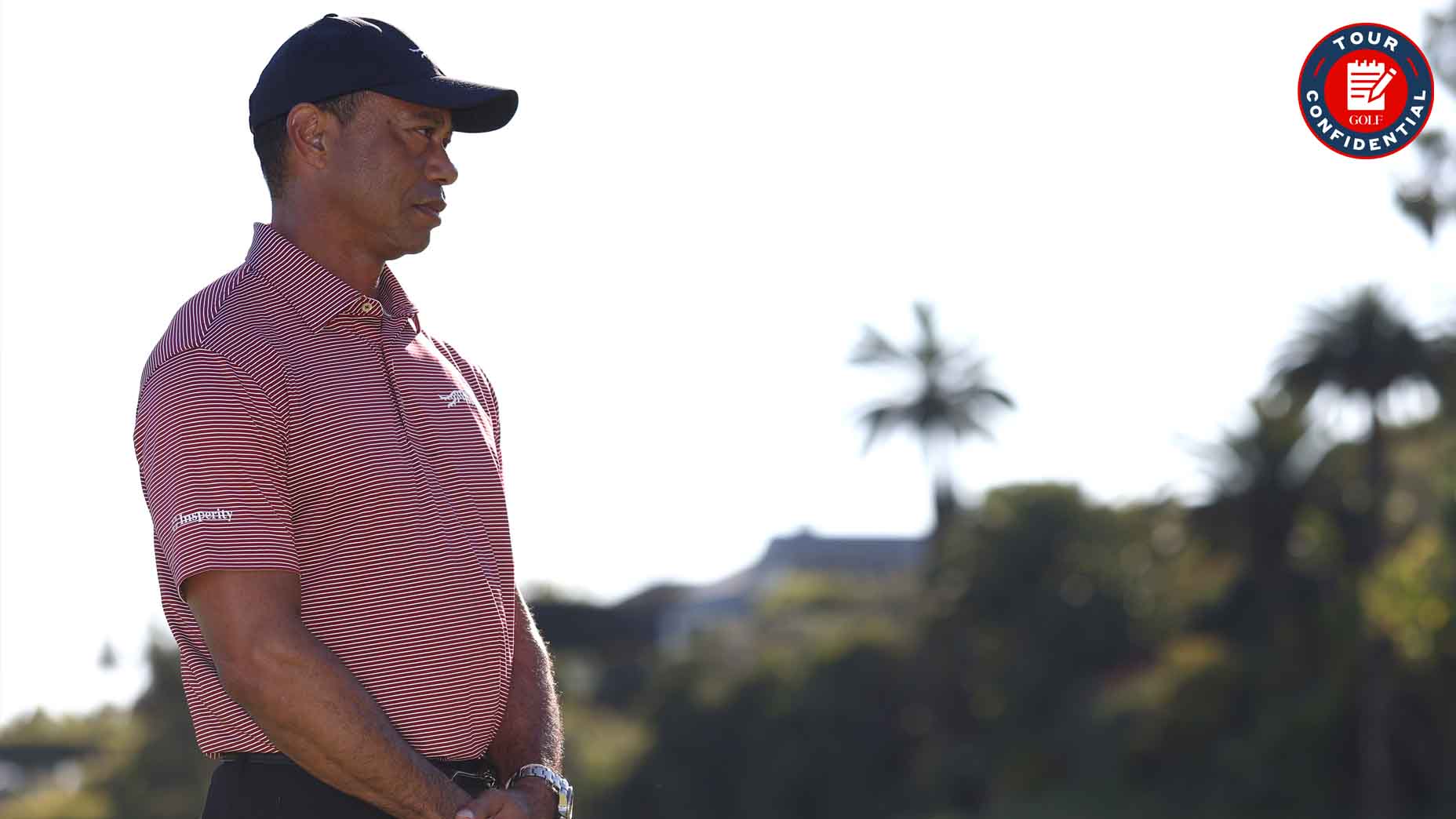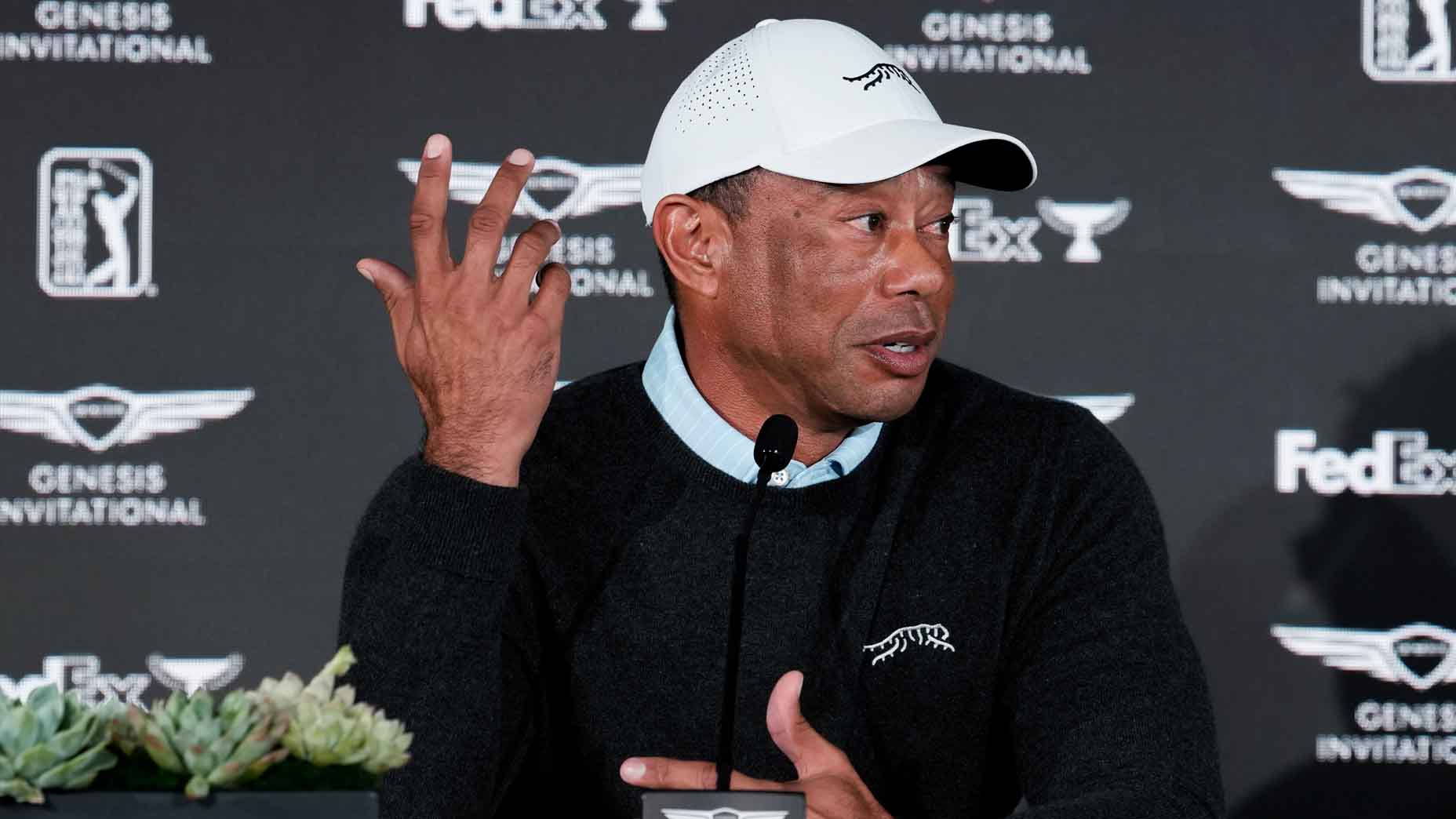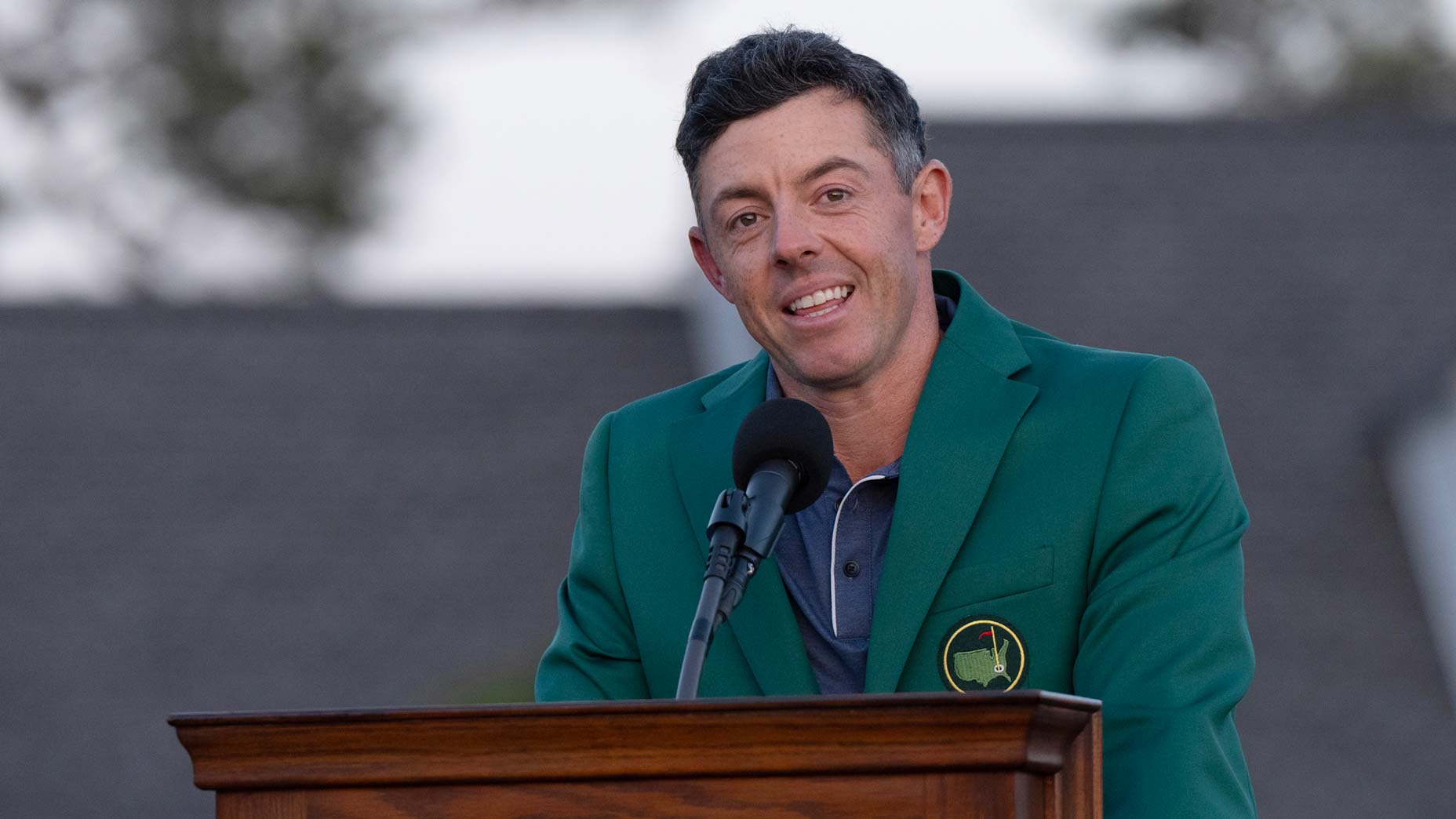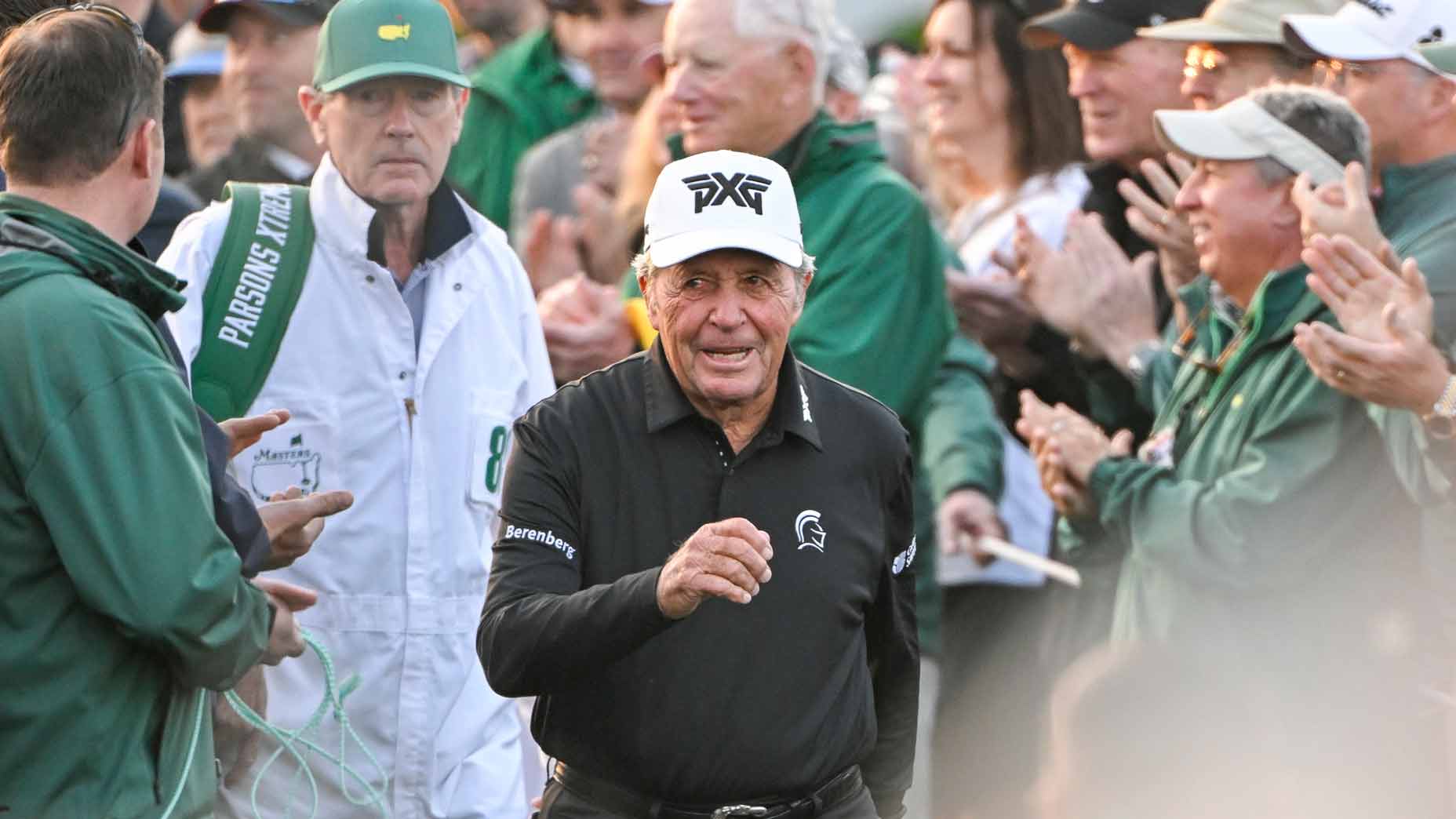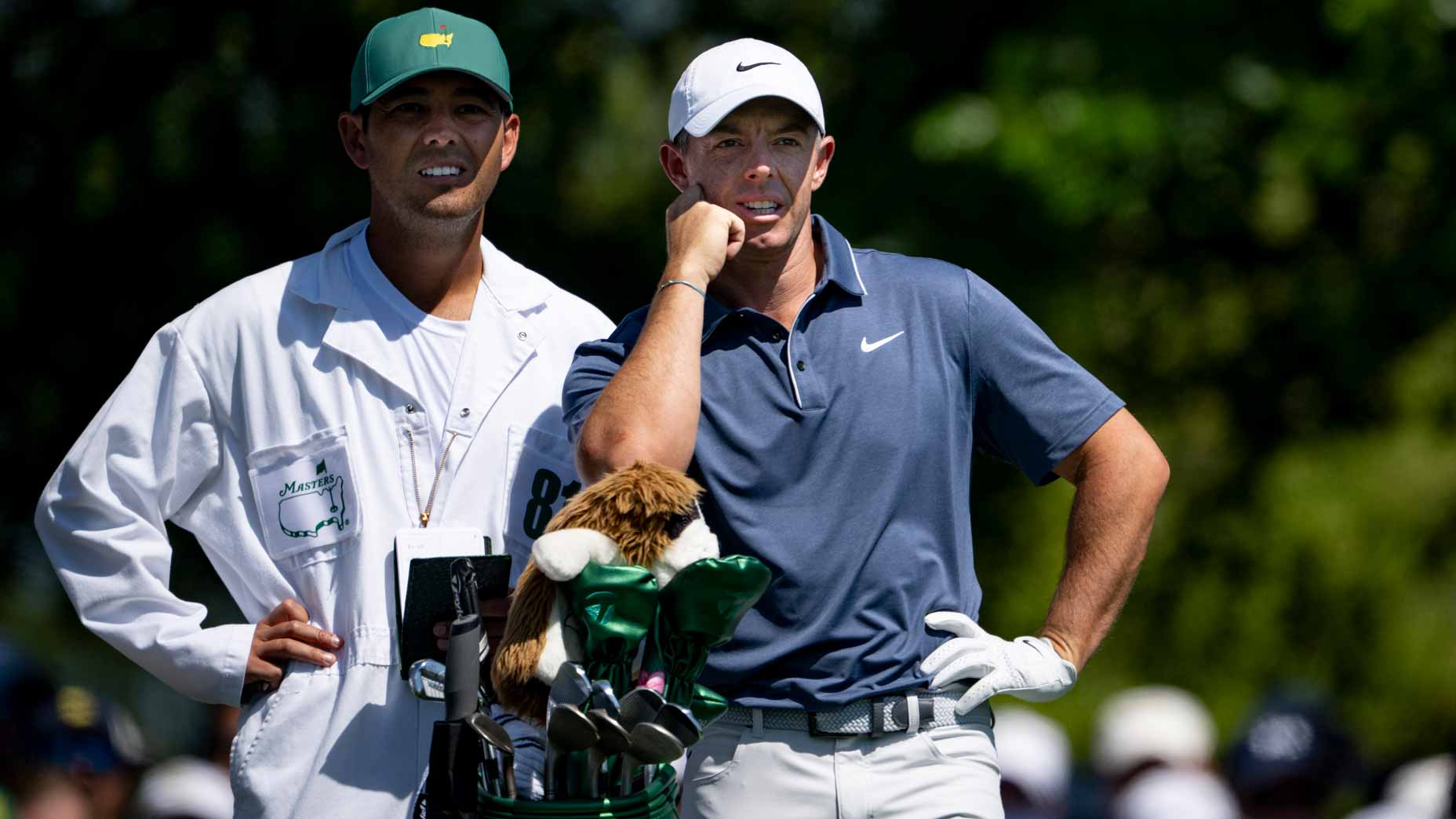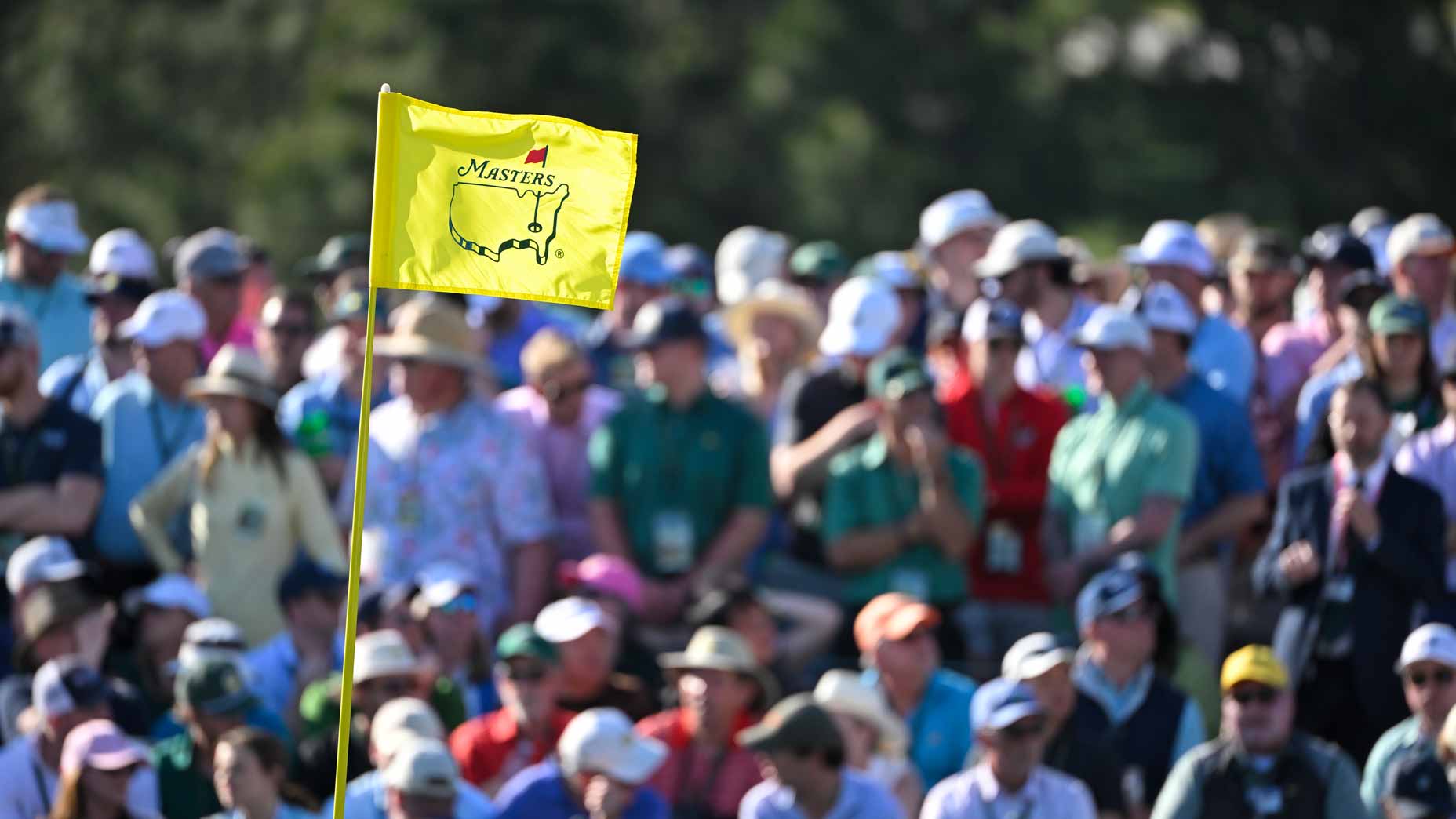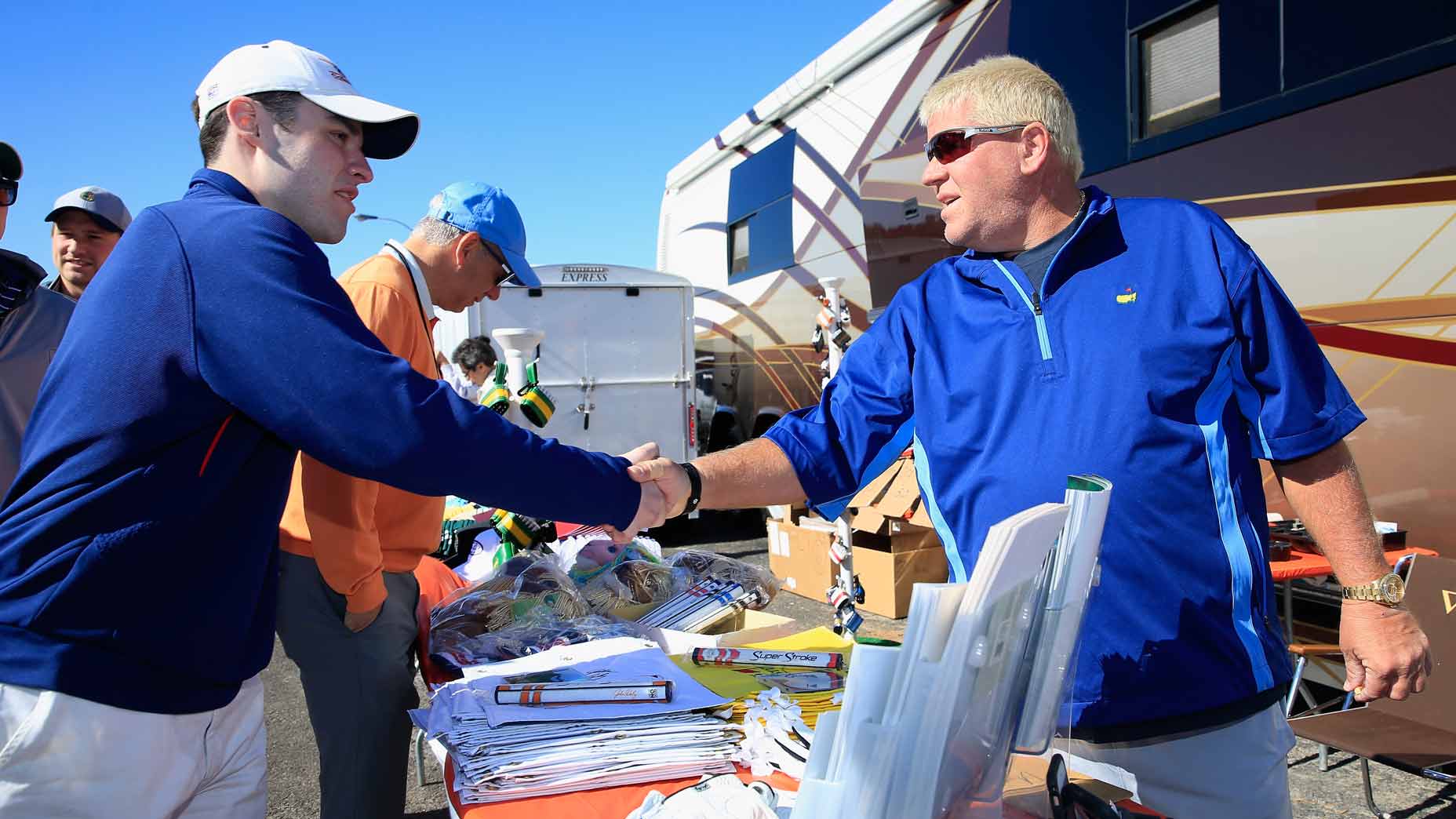There are many ways to ogle the majesty of the Masters: from the hulking grandstands overlooking Amen Corner; from a folding chair perched behind the 18th green; from the clubhouse veranda, chilled azalea in hand.
On Friday morning, I surveyed the tournament from a less traditional vantage point: 1,400 feet above Augusta National, in a four-seat Cessna Skyhawk prop plane. At the controls was David Dobbins, an Augusta flight school operator and founder of an aerial imagery company called Eureka Earth. Dobbins is best known in golf circles for keeping close tabs — some might employ the phrase spying — on the world’s most famous club.
With the aid of a high-powered camera affixed to the bottom of his aircraft, Dobbins has captured all manner of happenings at the club, ranging from the recent modifications to the 11th and 15th holes, to the clearing of land behind the 13th tee that formerly belonged to neighboring Augusta Country Club, to the demolition of the old ANGC pro shop. Eureka Earth’s social feeds, to which Dobbins posts his favorite images, have become a useful resource for curious golf fans and media members alike.
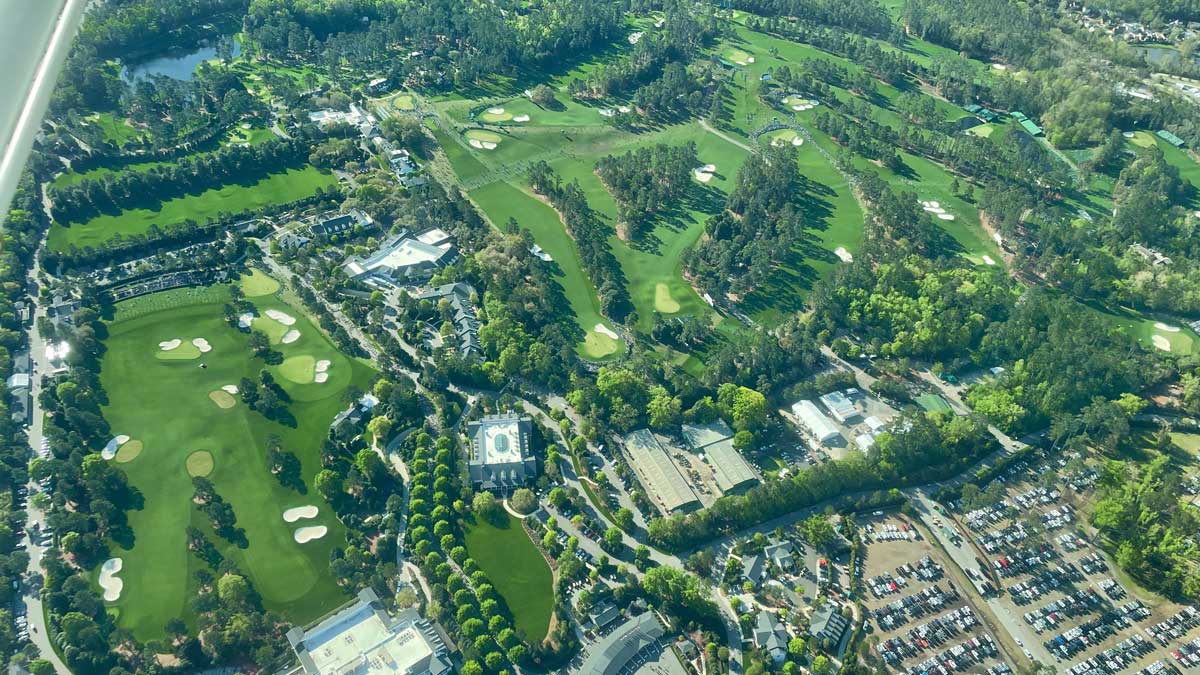
Most of Dobbins’ snaps are from the sky but not all of them. When Tiger Woods winged in to Augusta last week for a practice round, Dobbins was at the ready at Augusta Regional Airport, shooting pictures and video of Woods’ jet, instantly recognizable by Woods’ tiger-themed logo on the tail. That 9-second video has since been viewed more than 225,000 times.
It’s unclear how Augusta National feels about Dobbins’ surveillance — the club declined to comment for this story — but safe to say Dobbins isn’t on ANGC’s holiday-card list.
Earlier this week, as the second round of the Masters was getting under way, Dobbins agreed to give GOLF.com a closer look at how he navigates his bird over Augusta National. On a glorious sun-splashed morning, my colleague Connor Federico and I met Dobbins on the tarmac at Augusta Regional, aka Daniel Field. When we arrived at his Cessna, he was already behind the controls and eager to get airborne. I clambered into the seat next to him, buckled up and slipped on a headset. The propeller on the nose started whirling and we were on our way. Next stop: the airspace above Bob Jones and Alister MacKenzie’s masterwork.
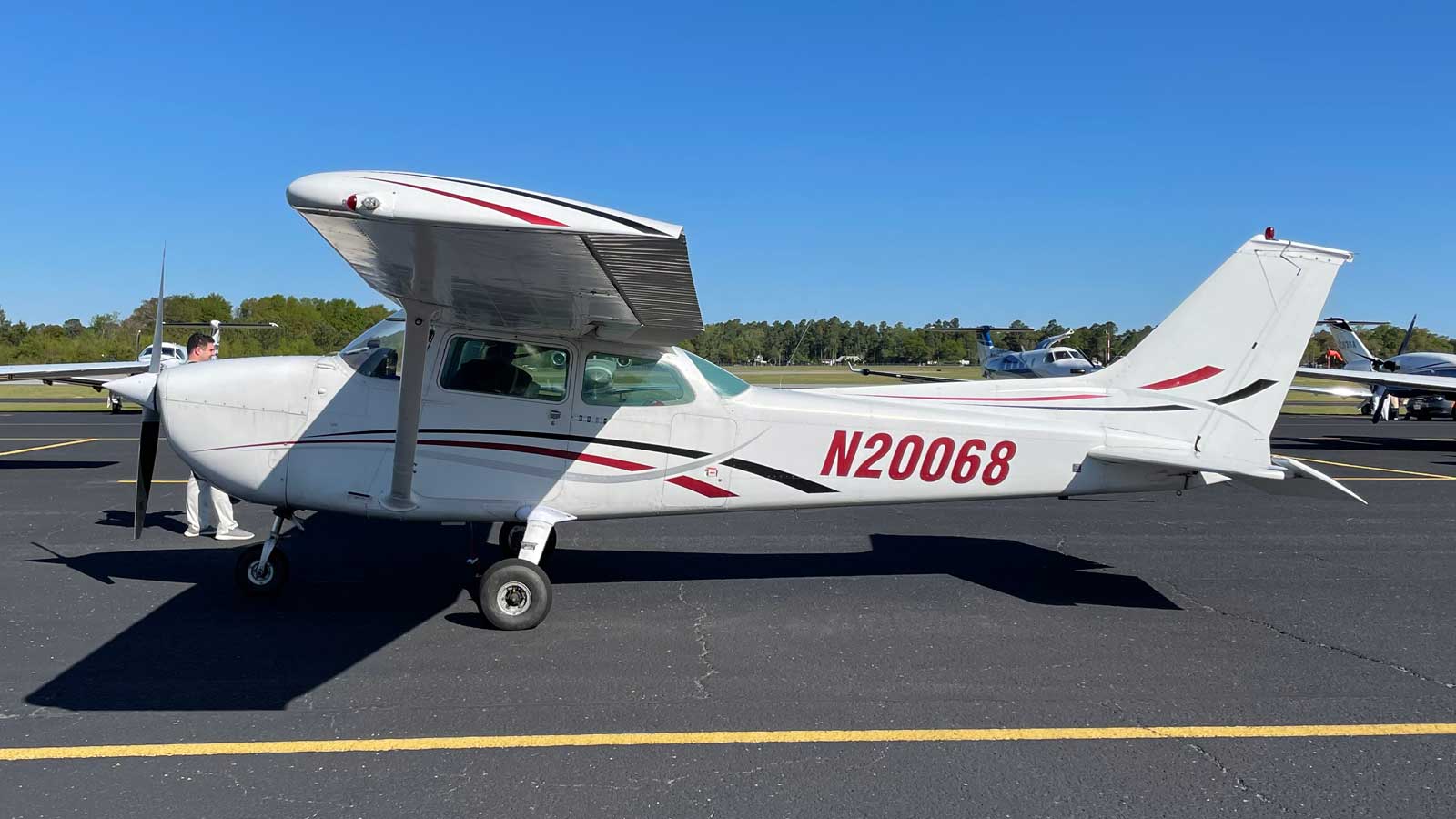
Friday’s forecast called for high winds, which was of some concern; in a plane this size, it doesn’t take much of a breeze to have you reaching for the Dramamine. But fortunately, the stronger gusts didn’t arrive until the afternoon. As we lifted off and climbed toward the clouds, it became clear that we were in for a smooth ride.
Two golf courses quickly came into view. Not Augusta National — a couple of public courses: Augusta Municipal, aka the Patch, which is wedged between two runways at Daniel Field, and Forest Hills, just west of the airport. Dobbins banked the plane to the right and we were headed northbound. The Augusta Topgolf came into view. So, too, did Augusta National, but from afar. We kept heading north toward the Savannah River and some farmland that Dobbins owns on the South Carolina side of the river. He pointed out his house. Then we spun back southbound toward the residential area that surrounds Augusta National.
The secret to Dobbins’ craft, at least when it comes to surveying Augusta National — and particularly during Masters week — is keeping his plane quiet. It’s OK if he’s seen but he doesn’t want to be heard.
Airspace restrictions prohibit him from getting any closer than about 1,400 feet above the property. But he approaches the course much higher than that, at about 5,000 feet, then slowly descends as he circles his target. This technique allows him to power down the plane so it produces less noise. As Dobbins explained to me a couple of years ago, when I first wrote about him:
“You’ve got waves of air, just like waves in the ocean — it’s pulling me up and down and I’m trying to work within that at a critically slow speed and low throttle setting. When I get the sinking air, instead of adding power to stay at altitude, which would make me more obvious on the ground, I just turn away from the course and let the plane descend into an area that’s not as populated, where the altitude is not as restricted. Then I can climb back up and come back over the course at my patrol speed.”
As we motored toward the course, one thing above all grabbed me: the property’s deep greenness. Augusta Country Club, next door, doesn’t lack for verdure, but it looked thirsty next to ANGC. The club’s 44 brilliantly white sand bunkers looked like salt bowls. Soon, patrons were visible, streaming down the expanse to the left of the first hole like an army of golf-hungry ants. With the field not yet on the inward nine, Amen Corner was patron-free, presenting an uncluttered view of that famous three-hole stretch.
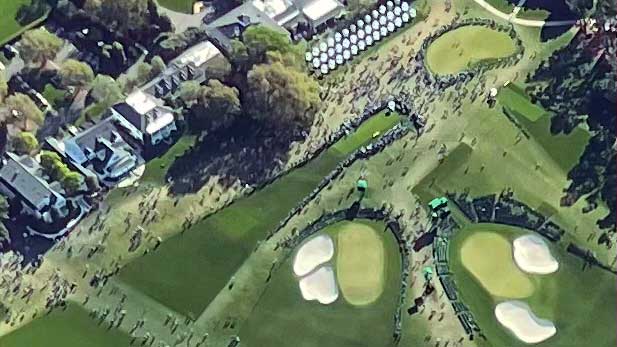
We started at about 5,000 feet but began descending as we looped around the property: 4,000 feet…2,000 feet…eventually bottoming out at 1,400 feet. That’s 460 yards, or about the same length as the 18th hole, of which we had a glorious view below us. “We’re in a really low power setting so it’s almost impossible to hear me,” Dobbins said of the patrons and players below.
Dobbins wasn’t taking photos on this flight, but he has a deep archive of them — more than 20,000 in all. He has Jack Nicklaus firing off an opening tee shot; Patrick Reed staring down a putt at the 2018 Masters; Tiger Woods en route to victory in 2019 (one of his favorite images is of Tiger’s caddie, Joe LaCava, tossing a ball to his boss on the 9th green, the orb frozen in mid-air). On Thursday, during the first round, Dobbins had been out hunting Tiger again. Woods was hard to miss, in his electric pink shirt.
“Would you please ask him to wear that again?” Dobbins said to me when we were back on the tarmac.
He was joking. Dobbins doesn’t need help finding his marks. He has an eye for it.

